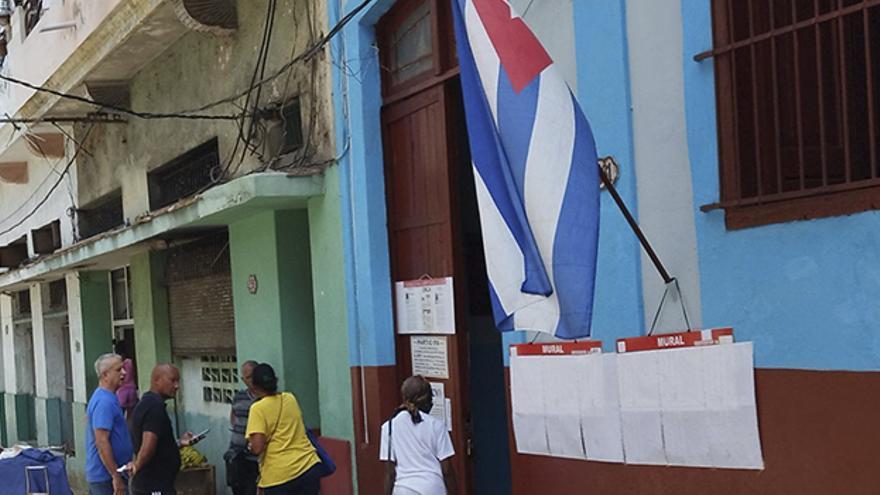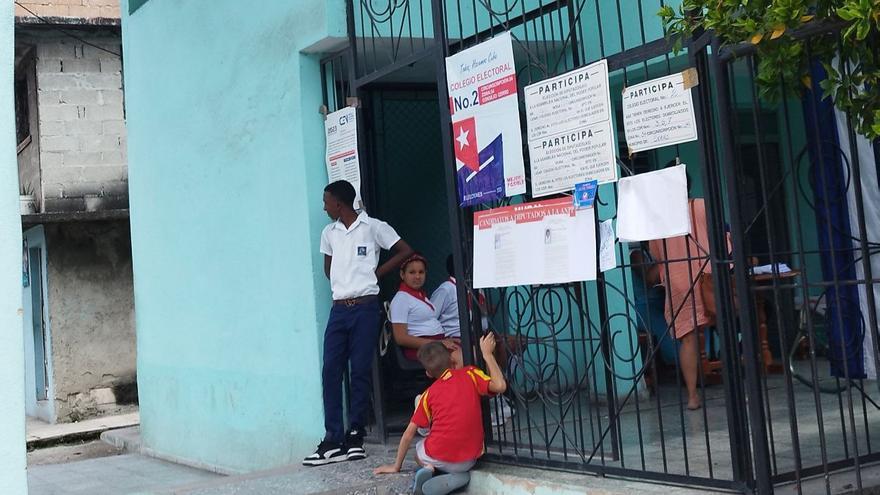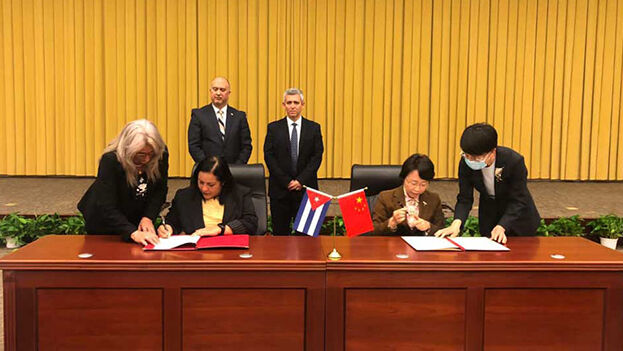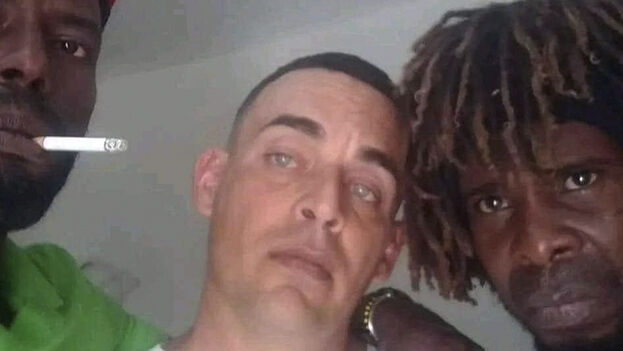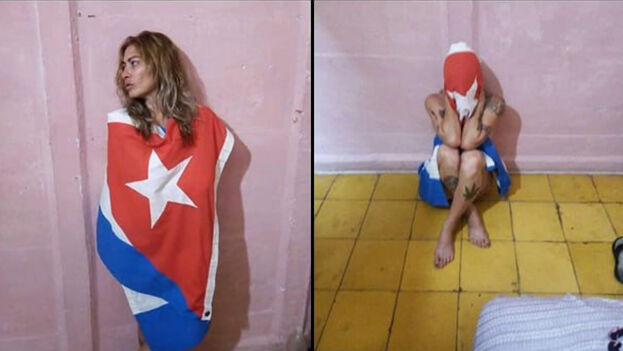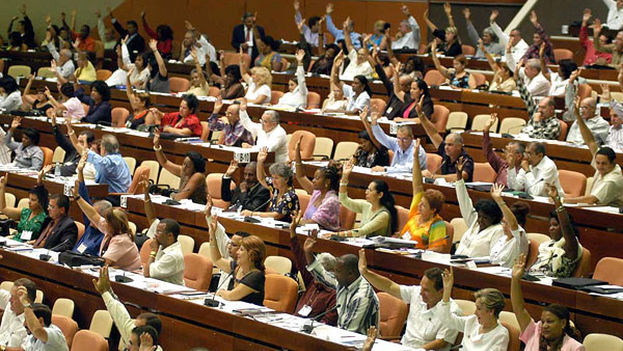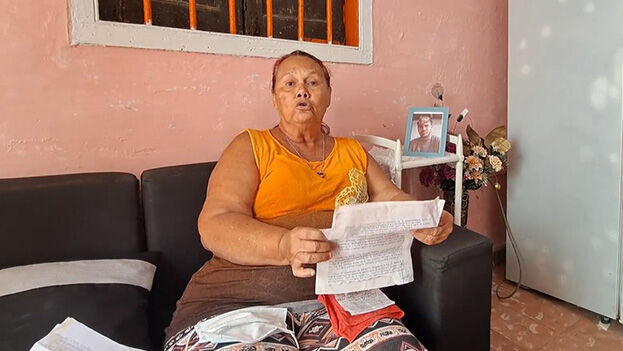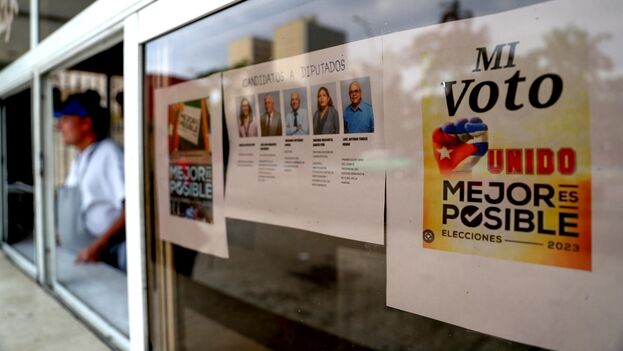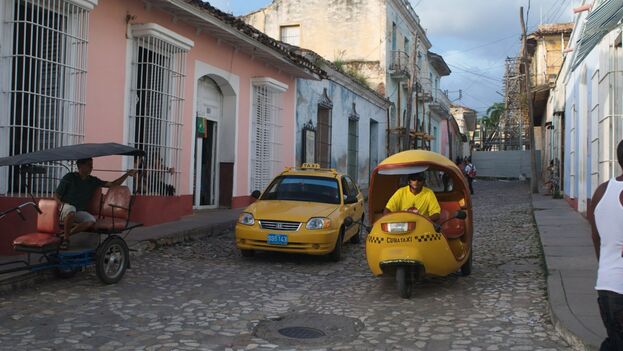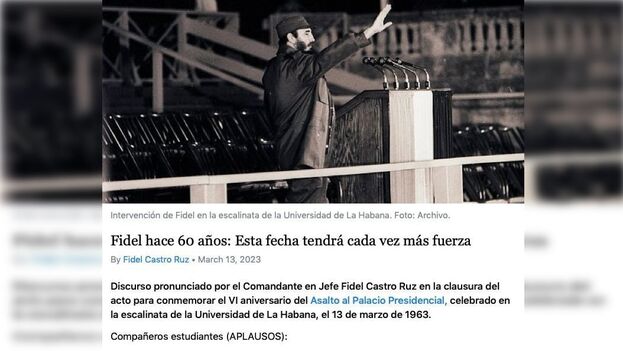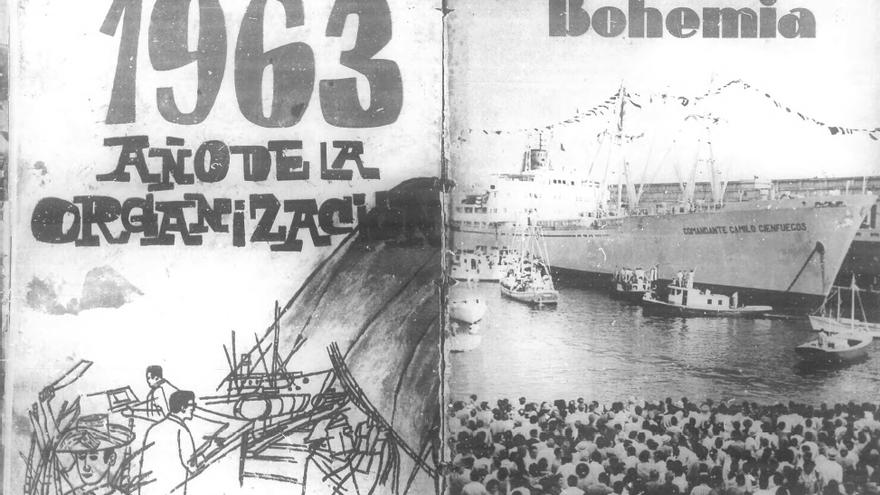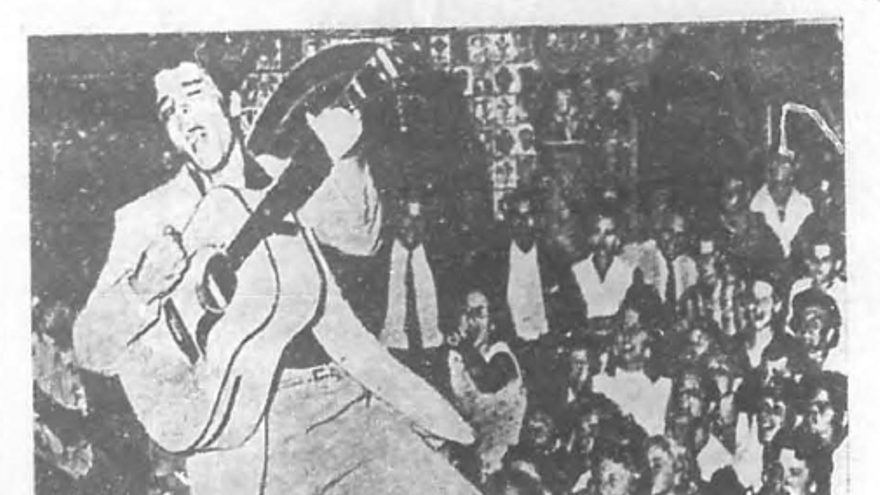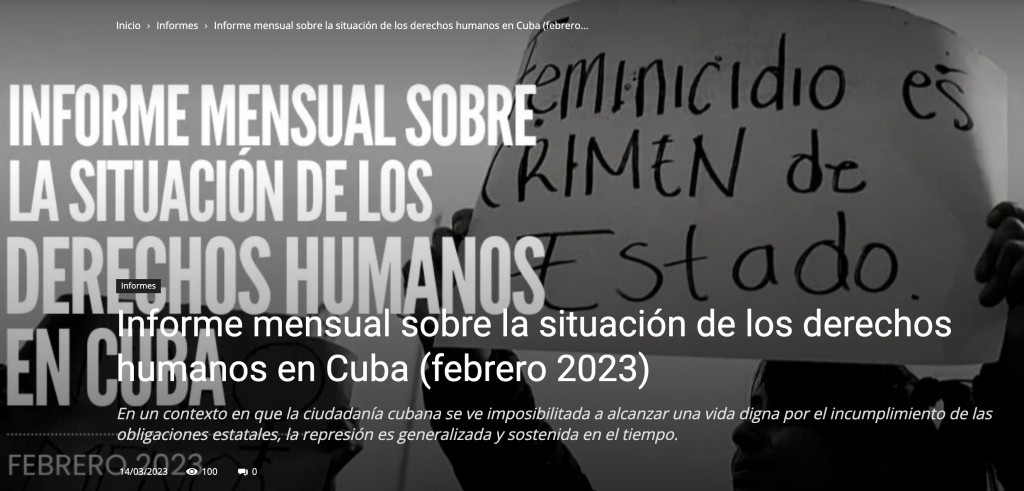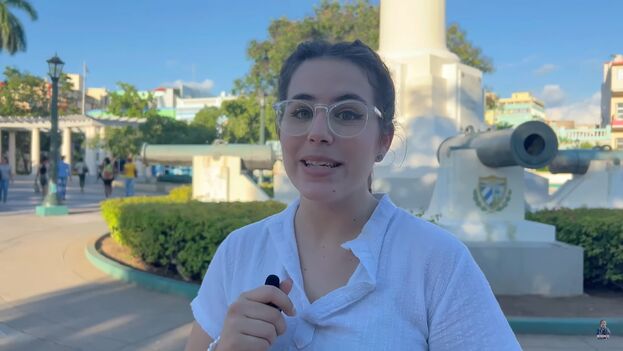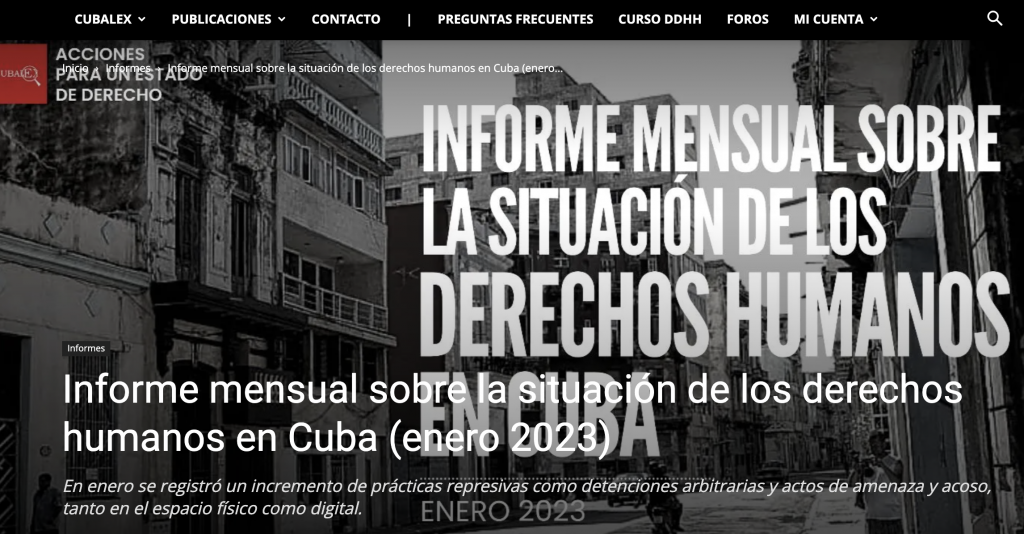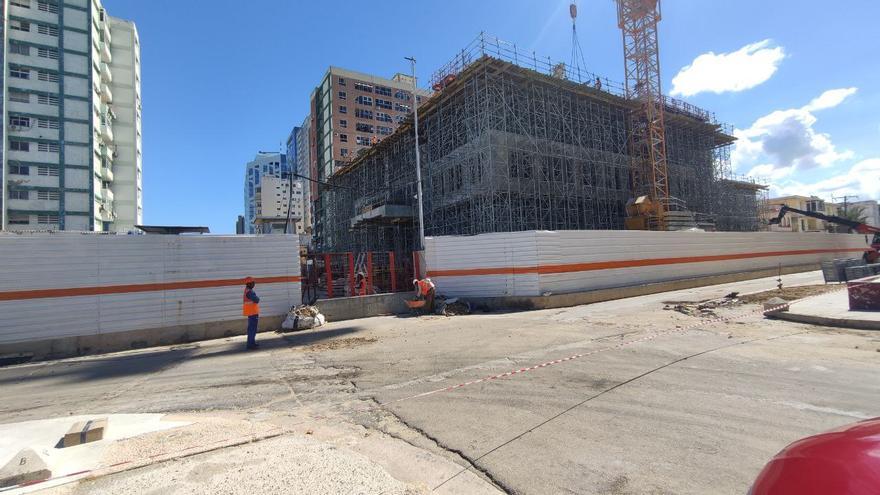
![]() 14ymedio, Havana, 13 April 2023 — The two sectors on which the Cuban regime has founded its popularity since 1959, health and education, combined received in 2022 one tenth the budget dedicated to business services and real estate and rentals. The area, considered a mixed bag that includes tourism, received 33% of the budget last year (23.360 billion pesos, almost one billion dollars at the official exchange rate), compared with the other two, which taken together barely received 3.3%.
14ymedio, Havana, 13 April 2023 — The two sectors on which the Cuban regime has founded its popularity since 1959, health and education, combined received in 2022 one tenth the budget dedicated to business services and real estate and rentals. The area, considered a mixed bag that includes tourism, received 33% of the budget last year (23.360 billion pesos, almost one billion dollars at the official exchange rate), compared with the other two, which taken together barely received 3.3%.
The accounts are even worse if these two areas are separated. The health and public services received 2.1% of the budget (1.520 billion pesos or 63.4 million dollars), education received 1.2% (820 million pesos or 34 million dollars), that is 16 and 27 times, respectively, less than the so-called “business and real estate services.”
The poor investment in health contrasts with the gigantic income the Cuban state obtains from exporting medical services, the country’s main source of hard currency. According to official data, collected from annual statistics published by the National Statistics and Information Office (Onei), in 2021, they collected 4.349 billion dollars from the export of health services, although between 2011 and 2015 they were able to obtain more than 11.500 billion, according to the information provided by the former Minister of Economy José Luis Rodríguez.
That imbalance in the budget for that sector, which is diverse and non-specific but associated with hotel construction, has been going on for many years; in 2021 the pinch was even greater, it received 35% of the total budget, though the total amount was smaller. continue reading
The only area that dares to approach it, although still far behind, is the manufacturing industry, which receives 17.3% of the budget, totaling 12.304 billion pesos. The sugar industry is excluded from that, with its own budget line which allows us to see the ruinous budget assigned to that notable product of Cuban industry — barely 0.6%, with 410 million pesos.
With a percentage in the double digits, the transportation, food and communications sector received 10.3% (7.316 billion pesos).
In fourth place, though barely noticeable to Cubans, was the provision of water, electricity and gas, which received 6.988 billion or 9.8.% of the total budget. Although the figure seems padded when compared to some of those already mentioned, it continues to be less than one third of what was budgeted for real estate.
Two other sectors that fared well were mining and quarries, an area in which the government has placed a lot of hope for the supposed benefits of exporting nickel, among other minerals. Those rceived 5.066 billion pesos. Hotels and restaurants — the portion of tourism not related to real estate — received 3.226 billion pesos, and commerce and repair of personal effects received 2.506 million pesos, ahead of what should be a priviledged sector, agricultural production.
To this area, specifically designated by the government as a “priority”, a mere 1.855 billion pesos were budgeted, only 2.6% of the total budget. “Amid a situation of food insecurity, it is worrisome that the relative weight of investment in agriculture remains stagnant at a leven which is 12 times lower than the relative weight of investment in business services and real estate,” stated Cuban economist Pedro Monreal on his Twitter account Wednesday.
The expert reminds us that the agriculture sector employs more than 17% of Cubans, the sector with the most employment, but the low level of investment makes it a beacon of low productivity that weighs down economic growth for the entire country.
“It is probably understood, but worth repeating — without a major investment in agriculture it will not be possible to overcome food insecurity in Cuba, nor to mitigate inflation, nor poverty, nor will there be national development. The slogans they come up with matter very little,” he said.
The data provided by the National Statistics and Information Office (Onei), which are for last year, lay bare not only the (now) old evidence that tourist construction is disproportionate compared to other sectors at a time when it is not on par with profits. It also reflects the constant contradiction of the government discourse that stops investing in pillars of social justice such as food (fishing uses 0.7% of total investment) health or education, to capture foreign currency which, to make matters worse, does not arrive.
The small amount budgeted for the agriculture sector, moreover, serves to bring down tourism. As the reproaches come from the ranks of officialdom itself, tourists spend more on food when they come to Cuba than on paying for hotel accommodations, but if there is no food, the country loses out on that income as well and informed travelers lose the incentive to come.
Translated by: Silvia Suárez
____________
COLLABORATE WITH OUR WORK: The 14ymedio team is committed to practicing serious journalism that reflects Cuba’s reality in all its depth. Thank you for joining us on this long journey. We invite you to continue supporting us by becoming a member of 14ymedio now. Together we can continue transforming journalism in Cuba.

